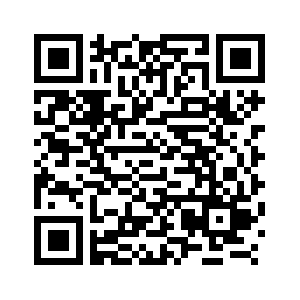BEIJING, Jan. 17 (Xinhua) -- The "closed-loop" management system for the Beijing 2022 Olympic Winter Games has run smoothly so far and has not affected the daily lives of local citizens, a Beijing 2022 spokesperson told Xinhua in an exclusive interview.
The Games-time closed-loop management will start on January 23, the same day as the Athletes Villages begin a test run before its official opening on January 27.
The following is an interview with a spokesperson for the Beijing Organizing Committee for the 2022 Olympic and Paralympic Winter Games (BOCOG).
Q1: According to the Playbook, a closed-loop management system will be put in place for the Winter Olympics, with a test run conducted from January 4 to 22. How is the test run progressing?
BOCOG: The test run of the "closed-loop" started on January 4, and will officially go into operation from January 23. The Athletes Villages will be put into a test run on January 23, and officially open on January 27. Athletes from various countries and regions will start to check in at the Villages from January 23. During the test run of the "closed-loop", nearly 3,000 people will arrive in China. This is a practical test of the Games-time closed-loop management system. The "closed-loop" has been running well over the past few days, with fast and efficient customs clearance during entry peaks. Accommodation, catering and transportation services have been put in place without impacting the daily lives of local citizens.
We have learned that some French figure skaters have quit other competitions to focus on their preparations for the Winter Olympics due to pandemic concerns. We appreciate their confidence in the epidemic prevention and control measures for the Winter Olympics. Meanwhile, the Omicron variant is raging across the world, and cases linked with the Omicron variant have been reported in a few areas in China. For this reason, operating a closed-loop management system has become even more important to ensure the safety of Olympic-related personnel.
We also spare no efforts in meeting the demands of Olympic participants by providing convenient, fast and meticulous services in the "closed-loop". In order to provide the participants with a comfortable Games experience, services like catering, online finance, laundry and convenience store shopping will be available in the closed loop.
Q2: Athletes competing at the upcoming 2022 Olympic and Paralympic Winter Games in Beijing have been told to "exercise extreme caution" about food safety in China, or risk doping violations. What are your comments?
BOCOG: The Beijing 2022 Organizing Committee (BOCOG) has always attached great importance to food safety, and all meat products provided for the Winter Olympics must meet food safety requirements. The supervision of meat products by China's food safety watchdog starts from breeding, and we have established a traceable information recording system covering the entire process of animal growth. The feed, medication, and epidemic prevention of food animals are strictly managed under China's national standards to ensure the absolute safety of athletes' meals. But we still recommend athletes pay attention to their personal diet and medication to align with the special testing requirements in international sports events.
Q3: There were reports that the International Ski Federation (FIS) "has no information" on China's fluorinated snow wax control at Beijing 2022. What are your comments?
BOCOG: In November 2019, the FIS Council decided to prohibit the use of fluorinated snow wax in all FIS competitions beginning from the 2020-21 season due to environmental concerns and health risks. But due to the COVID-19 pandemic, research and development of hand-held snow wax tracking equipment was not as smooth as expected, which lead to a postponement of the ban to the 2021-22 season, starting from July 2021. All teams should comply with this technical requirement put forward by the FIS.
BOCOG fully supports this decision as it is in line with our concept of delivering a "green" Games.
Q4: Athletes were advised to leave personal mobile phones and laptops at home amid concerns over the leak of personal information. What are your comments?
BOCOG: All actions of BOCOG strictly abide by China's laws and relevant regulations.
"My 2022" is a multi-functional app that provides various information services on weather, catering, accommodation, traffic, event news and medal standings to the accredited people of Beijing 2022. The app also serves for epidemic prevention and control and is similar to that used in the Tokyo Olympics.
According to the second edition of the Playbook, all accredited overseas Olympic participants must submit their health status daily through the health monitoring system for 14 days before entry into China. It is not compulsory to install "My 2022" on cell phones, as accredited personnel can log on to the health monitoring system on the web page instead. Data collected is clearly stated in the user agreement and privacy policy of the app and has been reviewed by the International Olympic Committee.
"My 2022" will inquire about the user's consent to access phone features in pop-up windows when it is opened for the first time. The app won't access related phone features if not in use, and users can turn off the permissions at any time in the system settings without affecting the app operation.
Also, "My 2022" has passed the examination of overseas mobile application markets such as Google, Apple and Samsung. We have taken measures such as personal information encryption in the app to ensure privacy security. ■



